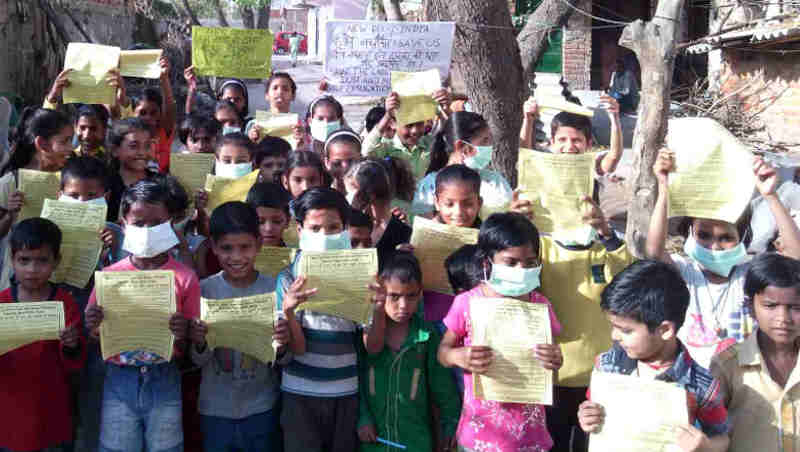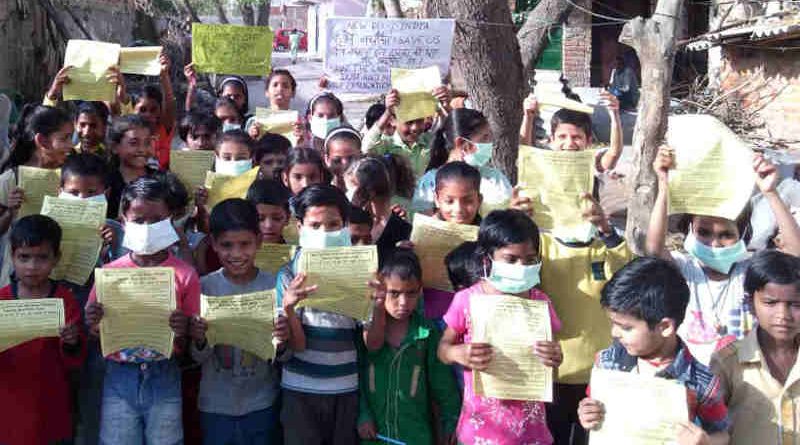Climate Change: Pollution Levels Rise in Delhi

The high pollution levels during this time of the year in Delhi are unusual and primarily due to dust storms from Rajasthan, a government statement said Wednesday. It added that Rajasthan is facing extremely dry weather conditions, with high temperatures and wind speeds.
The wind direction in Delhi since June 10 has changed to West and North West and then since June 12 to West and South West, due to which hot air, along with dust from Rajasthan has started moving into Delhi.
[ Poisonous Particles + Noise Nuisance = Death for Delhi ]
According to India Meteorological Department (IMD), the current surface winds in Delhi are in the range of 5-6 m/sec and wind direction is West to South West, which is likely to continue over the next three days. Therefore, it is expected that dusty conditions will prevail in Delhi over the next three days.
What Is Climate Change?
Climate Change refers to the change in the distribution of weather patterns over a period of time – usually measured over decades to thousands of years. Climate Change is caused by natural factors as well as human activities.
Natural factors such as variations in solar radiation received by Earth, plate tectonics, and volcanic eruptions contribute to the change in global weather conditions. The human activities that cause Climate Change are referred to as ‘global warming’. In the modern environment science, the term ‘global warming’ is interchangeably used with Climate Change.
The main cause of global warming or the human-led Climate Change is environmental pollution which contaminates the atmosphere with pollutants such as chemicals and energies. Pollution, therefore, has become a major factor that is causing ‘global warming’ or Climate Change.
As compared to the perils of environmental pollution that affect human health, the Climate Change brings mass destruction with floods, droughts, hurricanes, tornadoes, volcanic eruptions, earthquakes, and tsunamis.
Climate Change, which is an emerging subject in the global debate on environment, has assumed greater significance after 2016 Paris Agreement on Climate Change or Paris Climate Agreement.
It is an agreement within the United Nations Framework Convention on Climate Change (UNFCCC) that aims to deal with greenhouse gas emissions mitigation and overall environment protection, starting in the year 2020. As of August 2017, 195 UNFCCC members have signed the Agreement and out of them 160 have ratified it.
By Rakesh Raman
Major construction agencies, municipal corporations, and Delhi Pollution Control Committee (DPCC) have been alerted to ensure water sprinkling, as required.
[ Join Green Group of Dwarka ]
The Ministry of Environment, Forest and Climate Change (MoEFCC) has requested Chief Secretary, Delhi to issue appropriate instructions in the matter to the concerned agencies.
The Central Pollution Control Board (CPCB) convened an urgent meeting of the Task Force regarding implementation of Graded Response Action Plan (GRAP) and issued necessary directions to contain local dust sources. The Task Force has also recommended that public should avoid prolonged exposure.
💛 Support Independent Journalism
If you find RMN News useful, please consider supporting us.




